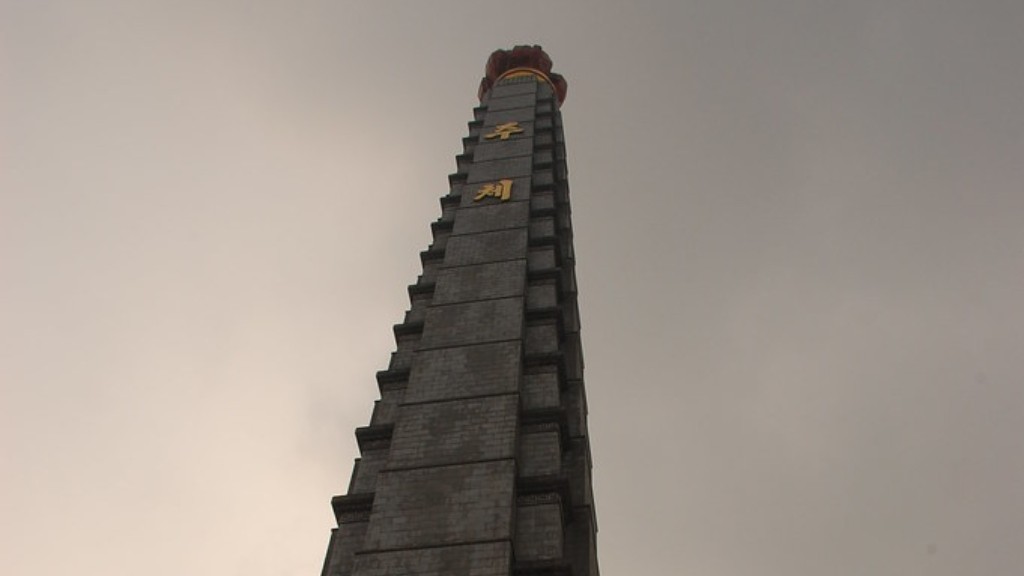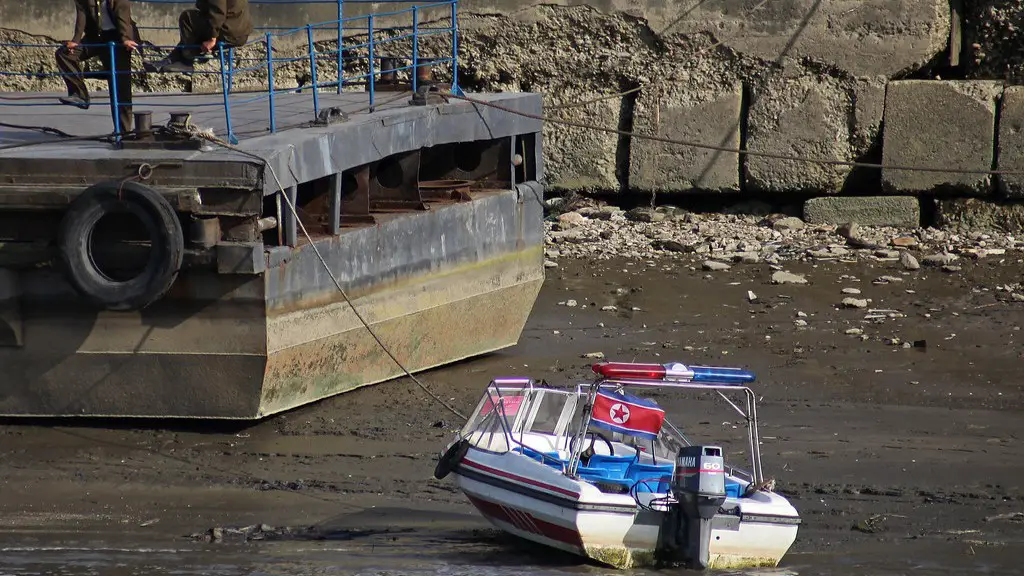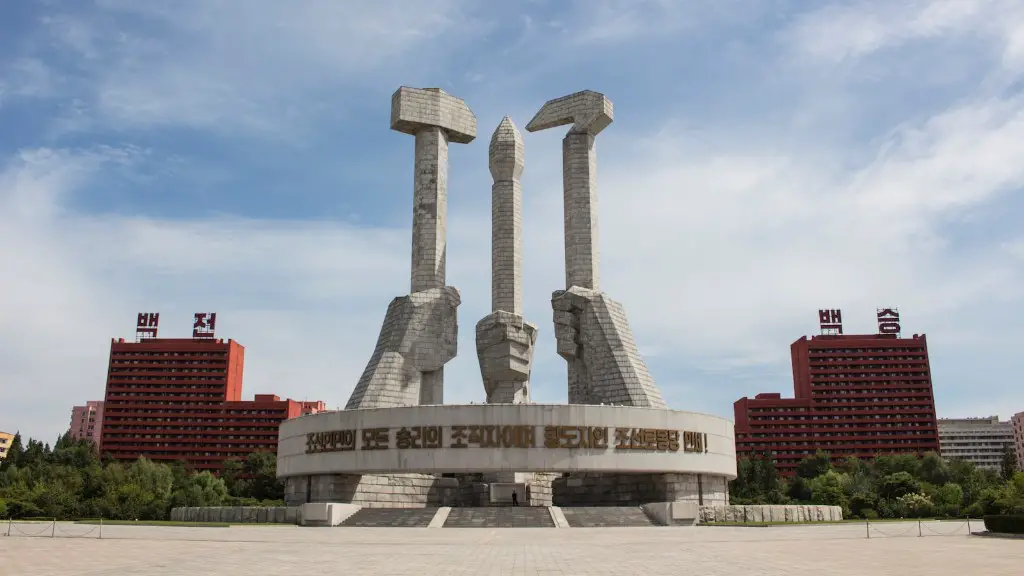Instability at the Korean Peninsula
The Korean Peninsula has been in a state of tension since 1945, when the country was divided into two by the Soviet Union and the United States. In 1950, the Korean War broke out, lasting until a cease-fire was signed in 1953. Although, technically, the war has never ended, the cease-fire has allowed for a situation of stability to remain over the last few decades. In recent years, however, tensions have risen, largely as a result of North Korea’s nuclear program and its frequent missile tests, which have elicited strong condemnation from the United Nations.
In addition to the nuclear program, the tensions at the Korean Peninsula are further escalated by the aggressive rhetoric of the North Korean government, which has issued repeated threats of violence against its neighbors, particularly South Korea and the United States. This has led to a great deal of speculation about what, if any, kind of response a North Korean attack might be met with.
International Response
In the event of a North Korean attack, the international community would respond in a number of ways. First and foremost, it would likely call for an immediate cease-fire and further negotiations in an effort to de-escalate the situation. Also, the UN Security Council would likely issue a resolution condemning the attack and calling for a lasting solution.
In addition, the United States and its allies would likely mobilize for a military response. The United States, along with its allies in the region, has made it clear that it would not tolerate a North Korean attack and would take all necessary measures to defend itself and its allies. This could include but is not limited to the deployment of additional troops to the region and conducting surveillance and reconnaissance operations. Moreover, the military response would likely be carried out in a joint effort with other nations, including China and South Korea.
The international response to a North Korean attack would also involve diplomatic means. The United States, along with other powers such as China, has heavily engaged in diplomatic efforts in order to de-escalate the violence and to find a lasting solution to the tensions in the Korean Peninsula. Furthermore, sanctions would likely be imposed on North Korea, as it has already been subject to a number of sanctions due to its nuclear program.
Domestic Response
The response within the United States would also be swift and decisive. The United States has advanced missile defense systems in place to help protect itself against a potential North Korean attack. In addition, the United States is well-equipped to respond to a North Korean attack with military retaliation. It has hundreds of fighter jets and bombers as well as guided missiles and nuclear weapons that could be used in a retaliatory strike.
The government would also respond with vital measures to protect the citizens of the United States. The Department of Homeland Security would lead these efforts, which would include coordinating evacuation plans and providing information to the public. Social media platforms would also be used to disseminate information to the public.
In response to a North Korean attack, the American people would also likely rally around the government, forming a united front against a common enemy. Such was the case after the terrorist attacks of 9/11, when the entire nation united in support of the government and its efforts to combat terrorism.
North Korean Capability
It is important to note, however, that it is unclear just how capable North Korea is of conducting an attack. North Korea’s nuclear weapons are of a rudimentary nature and its missile technology is believed to be quite primitive. As a result, North Korea may not have the capability to conduct a large-scale attack. It is also worth noting that, despite its rhetoric, North Korea has so far not taken any aggressive action against its neighbors.
Furthermore, North Korea is heavily dependent upon China for its economic survival. In the event of an attack, China would likely sever economic ties with North Korea, further isolating the country and weakening its economy. In turn, this would likely lead to a decrease in the country’s military capability, reducing the threat it is capable of posing to its neighbors.
Consequences of an Attack
Although a North Korean attack may be unlikely, it is important to consider the consequences of such an attack. In the event of an attack, the devastating consequences would be felt, not just in the nations directly involved, but around the world. There would be a significant loss of life and livelihood, not just in the region but possibly beyond, due to the possibility of a regional conflict.
In addition, the economic repercussions of a war in the Korean Peninsula would be substantial. The already fragile global economy would likely suffer from the increased tensions and volatility in the region, leading to a sustained period of instability and financial hardship. Moreover, the world would likely be faced with the prospect of a long and costly conflict, as North Korea has a large and well-equipped military.
Alternative Solutions
Rather than resorting to war, it is important to look at alternative solutions to resolving the tensions in the Korean Peninsula. One such solution is diplomacy, which has been heavily pursued by the United States and other nations in recent years. Through diplomatic engagement, the international community could work to facilitate a peaceful solution to the crisis and work towards lasting peace in the region.
Another possible solution is economic engagement. North Korea is in desperate need of economic development and foreign investment, and many countries have expressed a willingness to provide these things in exchange for certain concessions. This could be used as a way to slowly ease tensions and lead to a more peaceful resolution.
Finally, it is also important to consider the implications of a military response. Although a military response may seem like an effective solution at first, the consequences may be far-reaching and devastating. Thus, it should only be considered as a last resort if diplomatic and economic means prove ineffective.
Sanctions
Apart from diplomacy, economic engagement and military action, one other way to potentially reduce the threat posed by North Korea is through sanctions. There have already been a number of sanctions imposed by the United Nations, and more could be imposed in the event of a North Korean attack, in an effort to deter the country from taking further aggressive action.
These sanctions would likely have a significant impact on the North Korean economy, further isolating the country and reducing its ability to conduct an attack. Furthermore, the sanctions would demonstrate to the North Korean government that its behavior will not be tolerated by the international community.
Conclusion
Although the prospect of a North Korean attack is a serious concern, it is important to consider all of the potential responses and implications of such an attack. The international community must be prepared to respond swiftly and decisively, but also with restraint, to any attack as well as to possible alternative solutions. In any case, the prospect of a North Korean attack is one that must be taken seriously and prepared for appropriately.




